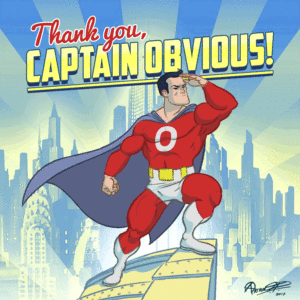Matthew Dicks's Blog, page 95
March 14, 2023
Unhappy?
Here’s a stupid and ridiculous thought:
Last night’s Oscar winners featured a large number of Asian actors and actresses, including:
Actor in a Supporting Role Ke Huy QuanActress in a Leading Role Michelle YeohBest Director Daniel Kwan (alongside Daniel Scheinert)Best Picture (producers Daniel Kwan and Jonathan Wang alongside Daniel Scheinert)Best Original Screenplay Daniel Kwan (alongside Daniel Scheinert)In addition, the Oscar for Best Song went to “Naatu Naatu” from the Indian film RRR.
Here’s my stupid and ridiculous thought:
Do you think the collective cesspool of white supremacists was angry that so many non-white actors and actresses were winners?
I really hope so.
I hope they were angry in the same way they were angry about the election of a black President and a multiracial Vice President. I hope they were angry in the same way they turn on the television and watch the world becoming less white and more diverse by the day.
A symbol of their inevitable, inexorable decline.
The German word for this is schadenfreude:
Pleasure in the misfortune of others
It’s not always the best or kindest way of thinking or feeling, but in this particular situation, I think it’s more than fine.

March 13, 2023
Vomiting as a lesson in leadership

Vomiting as a lesson in leadership.

March 11, 2023
Avoid writer’s block
The best thing about telling true stories about your life is that you never get writer’s block because you already know everything that happened.
This is a framing that I’d never considered before, but it’s true. And very well said. Kids are smart.Learn more about storytelling by joining my Facebook group Storyworthy: Storytelling for Business and Professionals.You just need to figure out how to tell it.

Captain Obvious
Even though sites like Twitter, Instagram, and Facebook allow children of that age to join their platforms, kids are still developing their identities, and social media can do irreparable harm to this delicate and critical process.
Among other things, social media can damage a child’s sense of self-worth, skew their view of the world, misalign their priorities, and promote toxic and even dangerous relationships.
Social media often does great damage to adults. Just imagine what it can do to an immature, still-developing brain.
I’d like to go on the record as wholeheartedly agreeing with the Surgeon General, but I also can’t help but think that he sounds a little bit like Captain Obvious.
Thirteen is too young to engage in social media?
No damn duh.

March 10, 2023
Fuku Fuku
I want to go on the record as saying that when I was in fifth grade, it would’ve been impossible for me not to intentionally read this title wrong again and again in an attempt to make people laugh and teachers crazy.
The fact that this has never even occurred to my student is a sign that things do get better. Evolution is real. Human advancement is indeed happening.
Also, I was an idiot.

March 9, 2023
What a wonderful world?
In a scene in the second season of The White Lotus, two characters are talking about the state of the world.
Fear not… no spoilers.
One character, a woman named Portia, in defending her opinion that the world is a terrible place, says that “literally everything’s falling apart.”
The man to whom she is speaking, a morally questionable man named Jack, asks, “You’d rather be living in the Middle Ages then, would you? When they were ripping each other to shreds?”
He points out that the Middle Ages were more violent than ISIS and that it’s a miracle anyone survived that horrific period of human history.
He goes on to say that “we’re living in the best time in the history of the world” on the very best planet.
He’s not wrong.
I think it’s very popular these days to look at the challenges that face our world and proclaim doom and gloom. But I think Jack is right, and I don’t even think we need to go as far back as the Middle Ages for perspective.
In 1970, my father was drafted into the Army against his will and sent to Vietnam by a corrupt President who would soon be forced to vacate the office in disgrace. Dad was forced to travel around the world and risk his life in a war that his country would ultimately lose. He wasn’t one of the almost 60,000 Americans who returned to our country in a body bag, but like so many Vietnam veterans, his experiences in the war, including exposure to Agent Orange, which would lead to a lifetime of heart disease, changed him forever.
He returned to America only to find an economy crippled with rising inflation and interest rates, both topping out in the double digits. The unemployment rate was also soaring, eventually reaching 8%, and an oil embargo was creating gas lines throughout the country as fuel prices soared and supplies dwindled.
It wasn’t exactly morning in America.
When my father left for Vietnam, interracial marriage in the United States was still illegal.
Until 1975 a woman could not apply for credit unless a man cosigned her credit application.
From 1970 through 1972, more than 100 planes were hijacked in the United States alone.
In 1978, 912 Americans, including more than 200 children, died in the Jonestown massacre.
In 1970, four college students died and nine were wounded on the campus of Kent State after being fired upon by the National Guard.
Unbeknownst to humankind at the time, a hole in the ozone layer was opening up thanks to the prolific use of chlorofluorocarbons.
If all of that wasn’t bad enough, the Beatles officially broke up in 1974 while disco was becoming the most popular form of music in the country.
Ask my father if he’d rather be living through the 1970s or today, I suspect he would choose today.
It’s easy to think your problems are the worst problems.
The COVID-19 pandemic was disastrous to our world, but the 1918 pandemic killed ten times as many people, and probably more.
The attempted insurrection on January 6 was disgusting and destabilizing to our country, but it was a speck of nothing compared to the Civil War.
Our climate crisis is existential and terrifying, but humanity suffered and survived through an ice age that lasted tens of thousands of years absent any technology beyond the ability to produce fire and make simple weapons.
I’m not implying that today’s world is unicorns and rainbows. I’m not saying that our problems are not real and, in some cases, absolutely existential in nature.
I am implying that it’s perhaps not as terrible as some people would have you believe. Maybe it’s not as singularly problematic as you might believe.
Perhaps Jack from The White Lotus is right:
Despite our serious problems, we’re living in the best time in the history of the world.
It’s easy to catastrophize. It’s appealing to think that we are living in special times. Unique times. The worst of times. Comedians in the last two specials that I’ve watched – comedians I adore – have both opened their shows with doom and gloom. Warnings of catastrophe and collapse. End times stuff.
Tell that to a black man living in Alabama in 1813.
Or an American soldier, gas mask strapped to his face, hunkered down in a muddy ditch somewhere in France in 1918.
Or a parent, watching their child lose their battle with polio in 1950.
I could go on and on.
Our challenges are many. Our problems are multitudinous. The danger we face is real.
But it’s hardly the first time human beings have faced exceptional challenges, seemingly insurmountable problems, and extreme dangers.
But maybe, as Jack from The White Lotus strongly implied, these days aren’t nearly as bad as the problems that faced our ancestors.
I think so.

March 8, 2023
Not even close to a fair fight
This video shows Jon Stewart skewering Oklahoma State Senator Nathan Dahm in a debate about gun laws in America.
I was looking forward to watching the debate, but quite honestly, it’s hard to watch.
It’s like watching a grown-ass man beat a small, defenseless child to a pulp.
Dahm is a joke. His argument, rationale, and logic are so deeply flawed that the encounter barely qualifies as a debate. It’s a drubbing. A disaster for Dahm and his unrighteous cause. A pathetic display by someone who was incapable of the most basic forms of argumentation.
I am not opposed to the Second Amendment. I am, however, opposed to the public ownership of assault weapons and high-capacity magazines. I oppose stand-your-ground and open-carry laws. Also, like 95% of Americans, I support rigorous background checks in order to purchase firearms legally.
I stand in opposition to most of what Senator Nathan Dahm believes, yet had I been playing devil’s advocate in this interview on his behalf, even I could have done a better job supporting his stupid cause.
Someone like Oklahoma Senator Nath Dahm should know better than to bring a plastic knife to a proverbial gunfight, which is what happened here.
Jon Stewart skewered the man, which turned out to be not-so-hard and even less entertaining.
March 7, 2023
Four rules of a successful meetings (and more!)
Several companies have recently begun taking deliberate steps to slash the number of meetings they force their employees to attend.
Huzzah!
Shopify made superfluous meetings enemy number one, and the purge worked. Since canceling recurring group meetings, banning most meetings on Wednesdays, and requiring all meetings with 50 or more people to happen in a six-hour window on Thursday, Shopify deleted 12,000 events from calendars and freed up 95,000 hours for their workers.
As a shareholder of and consultant for Shopify, this pleases me enormously.
Meeting bloat has gotten bad:
According to Microsoft’s data on the usage of Teams, the number of meetings attended by the average user more than doubled from February 2020 to February 2022, and the time spent in those meetings tripled.
Meetings are like a virus. They will grow uncontrollably and do great damage if not stamped out whenever possible.
Here are my rules for meetings:
If the meeting starts late, you failed.If the meeting does not end early, you failed.If you say anything that could have been effectively conveyed in an email, you failed.If you were not entertaining, you failed.I find it astounding that someone might stand in front of a group of people and not try to entertain them.
I find it equally surprising that someone might stand in front of a group of people and assume engagement, attention, interest, and investment without doing something to guarantee these things.
People never want to listen to you unless you give them a reason to listen. When you internalize this truth, you will begin finding ways to ensure their engagement, attention, interest, and investment by being entertaining.
Please note that entertainment comes in many forms. You can:
Make people laughUpend expectationsSurprise your audienceCreate suspenseIntroduce a novel formatOffer surprisingly useful or compelling informationTell a storyUnderpromise but overdeliverPresent well-designed visualsProvide exceptionally useful materialsFeed your audienceYou can also dramatically increase your potential for entertainment by eliminating everything that makes a meeting awful, repetitive, infantilizing, and boring, including:
Outlining norms and expectationsIce breakersReading from your slidesPoorly designed slidesAssigned seatingTo determine if your meeting has value, count the number of people attending your meeting. Multiply that number by the length of the meeting. This number is critical to determining if your meeting was worthy of existing.
For example, if 40 people are attending your hour-long meeting, you just spent 40 hours of labor – the average work week of a single full-time employee – on your meeting.
How much does the average employee at your place of business earn in a single week?
That is the labor cost of your meeting.
Then ask yourself:
Was it worth it?
Sometimes the answer is an emphatic yes.
Oftentimes it’s a regretful no, but instead of answering in the negative, a leader will offer a laundry list of reasons why $1,836 was a perfectly reasonable sum to spend on a meeting that was forgotten less than a day after it concluded.
The most fascinating thing about meetings is this:
If you end your meeting 3 minutes early, people will adore you.
If you end your meeting on time, people will probably feel neutral about you, though I will probably see you as a failure.
If you end your meeting 3 minutes late, people will hate you.
Knowing this, why don’t leaders always end meetings early? The difference of 360 seconds can change how your people feel about you and the time they spent with you.
It’s the easiest way to win over an audience.

March 6, 2023
5 Lessons from Delivering 10 TEDx Talks
After delivering 10 TEDx Talks over the last decade, I created a workbook that lists and describes five lessons that I’ve learned.
Not a full and complete instructional guide on the writing and delivering of a public speech or talk (though I could certainly write one if paid enough), but five lessons that you perhaps have never heard before that can level up your public speaking skills.
Five lessons that may help you better deliver your next talk, speech, presentation, sales pitch, keynote, locker room rallying cry, inspirational address, commencement speech, or TEDx Talk.
It also includes stories about and references to Morpheus from The Matrix and Dr. Ruth.
Also excellent, it’s FREE.




